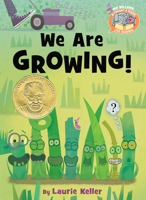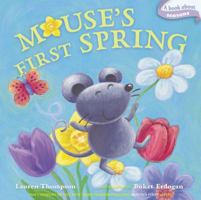Clark the Shark: Afraid of the Dark
(Part of the Clark the Shark Series)
Select Format
Select Condition 
You Might Also Enjoy
Book Overview
Children's Choice Book Award Finalist
Clark the Shark is ready for his first big sleepover He's nervous about sleeping outside without his glow-fish night-light, but he doesn't want anyone to know he's just a teeny-tiny bit afraid of the dark. So Clark makes up a rhyme to help him stay cool: "Take heart, be smart, sharks aren't afraid of the dark."
But when the sun sets and his friends begin telling spooky stories, Clark's voice sounds quiet and small and not brave at all. In this empowering tale about conquering nighttime fears, Clark the Shark learns how friendship can help light the way through the dark.
Featuring bright, colorful artwork from Guy Francis and hilarious read-aloud text from Bruce Hale, this Clark the Shark picture book is the perfect story for kids braving nighttime jitters
Customer Reviews
Rated 5 starsGreat guide to get started
I bought this book for the 30 day by day plans. I also enjoyed that it had the current season's cast. As mentioned in other reviews, the menus are good guides but the ingredients are often used just once in the 30 days and most recipes yield a large number of servings. As many people are the sole dieter in the house or perhaps live alone, it would have been more helpful if they had "serves 1 (or even 2)" sizes and use the...
0Report
Rated 5 starsBiggest Loser 30 day Jump Start
This book was just what I needed to help me commit to a regular exercise regime. I used the menus as a guide for what kinds of food to eat, and how much. The recipes are easy to follow,and most of the food is just ordinary healthy food. At 55, I found the exercises to be challenging, but have completed all 30 days, and am now going back and doing the second two weeks again, only increasing the number of reps and weights...
0Report
Rated 5 starsYou To Can Be A Biggest Loser
[...] From: BasilAndSpice Author & Book Views On A Healthy Life The Biggest Loser 30-Day Jump Start: Lose Weight, Get in Shape, And Start Living the Biggest Loser Lifestyle Today (Rodale/ Feb 2009) by Cheryl Forberg, Melissa Roberson, Lisa Wheeler, Biggest Loser Cast and Staff The Biggest Loser 30-Day Jump Start is about more than just television entertainment. The program has been immensely popular because it is an actual...
0Report
Rated 5 starsPlan your life, live your plan
This book is 308 pages of pure inspiration. I defy you to look at it and not be moved to live healthier. Basically you'll learn what to eat -- and what NOT to eat -- and how to exercise. If you are familiar with The Biggest Loser reality show on NBC, this book uses the same knowledge and guidelines from the same experts. It is "a 30-day blueprint for improved health, weight loss and a whole new life." Don't be fooled by the...
0Report

































































